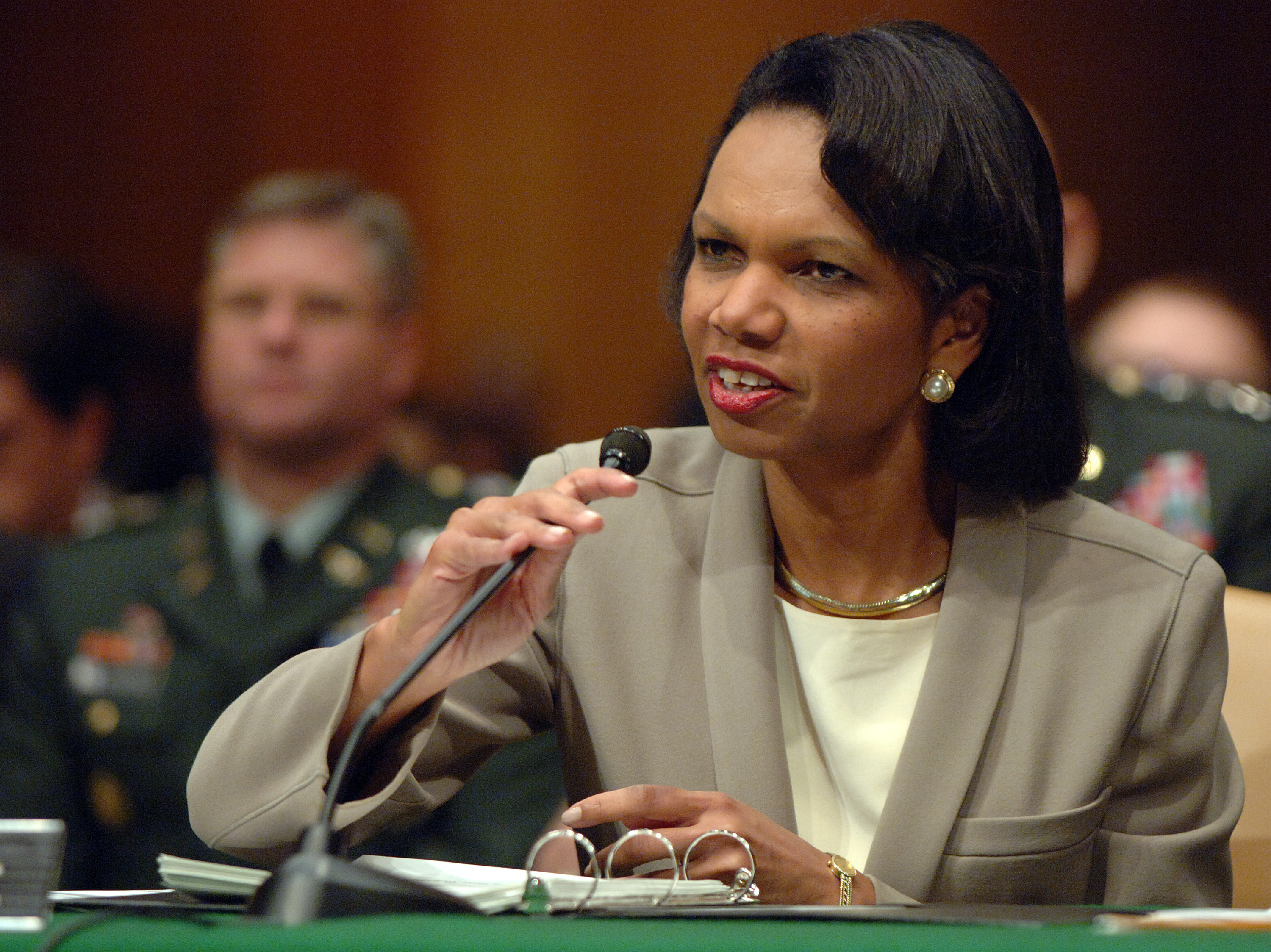
WASHINGTON (BP)–The nation of Iraq was founded across fault lines of ancient civilizations, among Arabs and Kurds, Sunnis and Shiites, Muslims and Christians, Secretary of State Condoleezza Rice reminded the Senate Foreign Relations Committee Oct. 19.
“No one can solve this problem for them,” she said in testimony before the committee. “For years these differences were dealt with through violence and repression. Now Iraqis are using compromise and politics.”
Rice said the United States has accomplished the goals of overthrowing a brutal dictator, liberating a nation, defeating the regime’s military forces, transferring sovereignty to an Iraqi government, organizing international support and holding two national elections in Iraq.
The objective for 2005 was a political transition to a permanent, constitutional democracy and a security transition to greater reliance on Iraqi forces, she said. When more than 9 million Iraqis voted on the referendum Oct. 15, a landmark in the process was accomplished.
Other signs of progress include the fact that in August 2004, five Iraqi regular army battalions were in combat, Rice said, and today, 91 Iraqi regular army battalions are in combat. A year ago, no American advisers were embedded with these battalions, but now all of them have American advisers to help expedite the process of independence.
U.S. troops and their Iraqi counterparts have been successful at securing areas of the country neighborhood by neighborhood, she said, and a stark difference exists in the status of places like Baghdad’s Sadr City, downtown Mosul, Najaf and Fallujah compared to a year ago.
“Security along the once-notorious airport road in Baghdad has measurably improved,” Rice told the senators. “Najaf, where American forces fought a major battle last year, is now entirely under independent Iraqi military control.”
The ongoing plan to assure victory in Iraq, the secretary of state said, is to “clear, hold and build: to clear areas from insurgent control, to hold them securely and to build durable, national Iraqi institutions.” All of this is to be done alongside the Iraqi government, she said.
Within those three objectives are the goals of breaking the back of the insurgency, keeping Iraq from becoming a safe haven for Islamic extremists, demonstrating positive potential for democratic change and turning the corner financially and economically, Rice said.
“Now, of course, to achieve this, we must know who we are fighting. Some of these people are creatures of a deposed tyrant, others a small number of homegrown and imported Islamic extremists,” she said. “They feed on a portion of the population that is overwhelmed by feelings of fear, resentment and despair.”
Enemy forces have never won a platoon-size battle against U.S. troops, Rice said, but their tactic has been to shake the will of America, Britain and other coalition countries through random acts of violence.
“Let us say it plainly: The terrorists want us to get discouraged and quit. They believe we do not have the will to see this through. They talk openly about this in their writings and on their websites,” Rice said.
But through an integrated civil-military partnership, Americans and Iraqis are clearing away insurgents and threatening their downfall.
“As one terrorist wrote to another: ‘If the government extends its control over the country, we will have to pack our bags and break camp,’” Rice recounted.
The past two years have seen three temporary governments in Iraq, making the building of solid national institutions even more difficult, she said, but when a permanent government is elected in December, Iraqis will “finally set down real roots.”
Rice acknowledged further obstacles to reconstruction, giving the electricity problem as an example.
“In the transition phase, we concentrated on capital investment, adding capacity to a system that had deteriorated to the point of collapse. But, with freedom, the demand for electricity has gone up by 50 percent and the capability we have added is not being fully utilized because of constant insurgent attacks,” she said.
Her comments came days after a report by USA Today said about 25 cents of every reconstruction dollar now pays for security, causing the cost of rebuilding projects to soar. The article cited security as the largest obstacle to rebuilding Iraq.
Rice said Iraqis have made it clear that they want the multinational military coalition to remain in their country, and in the future the military efforts must be matched by diplomatic, economic and political support from the entire international community. NATO has led the way by opening a training mission near Baghdad, she said.
The United States is in the process of restructuring a portion of its mission in Iraq, she said.
“Learning from successful precedents used in Afghanistan, we will deploy Provincial Reconstruction Teams in key parts of the country. These will be civil-military teams, working in concert with each of the major subordinate commands, training police, setting up courts and helping local governments with essential services like sewage treatment or irrigation,” she said. “The first of these new PRTs will take the field next month.”
It is hard to imagine a decisive victory in Iraq when violent men continue to wage attacks on Iraqis and Americans, Rice said, but the end result will be worth the sacrifice.
“A free Iraq will be at the heart of a different kind of Middle East. We must defeat the ideology of hatred, the ideology that forms the roots of the extremist threat that we face,” she said. “Iraq’s struggle — the region’s struggle — is to show that there is a better way, a freer way, to lasting peace.”
–30–
















